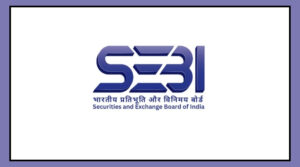Market regulator SEBI (Securities and Exchange Board of India) is preparing to make major changes to the fee structure of mutual funds.
In its new consultation paper, SEBI has proposed several important reforms to mutual fund regulations.
One key proposal is to allow mutual fund houses to charge different expense ratios based on the performance of their schemes.
Currently, this is optional for fund houses (AMCs), but SEBI plans to make it a formal part of the regulation.
What Does This Mean for Investors?
If SEBI implements this reform, funds that perform well (generate high returns) could be allowed to charge higher fees, while poorly performing funds would have to charge lower fees.
This system, known as the Performance Linked Expense Ratio (PLER), aims to link fund expenses directly to how well a fund performs.
However, many investors are curious whether this model will truly benefit them and how it will work in practice.
Fund Managers’ Responsibility Will Increase
According to AK Nigam, Director of BPN Fincap, this change will likely benefit investors if implemented correctly.
It will increase the accountability of fund managers, as they will need to ensure that their schemes outperform benchmarks and deliver better returns.
Nigam believes that funds performing better than their benchmarks deserve higher fees, which is fair since investors would be willing to pay more for stronger performance.
However, he adds that fund managers already act responsibly, as poor-performing schemes tend to lose investors.
Still, a well-designed performance-linked model will strengthen this accountability even further.
How Can This Model Be Improved?
Experts suggest that instead of using only annual returns to evaluate performance, SEBI should use rolling returns.
Rolling returns measure how consistently a fund performs over multiple periods, reducing the impact of short-term market ups and downs. This approach gives a fairer picture of fund performance.
Other Proposed Changes by SEBI
Removal of Additional 5 bps Charge:
SEBI has proposed removing the extra 5 basis points (bps) charge on the Assets Under Management (AUM) of a scheme.
This move is aimed at reducing overall costs for mutual fund investors.
Reform in Expense Ratio Calculation:
SEBI plans to separate all taxes from the expense ratio and slightly reduce the expense ratio limit.
This means any future tax changes (increase or decrease) will be directly passed on to investors, ensuring fairness.
Full Disclosure of Total Expense Ratio (TER):
Mutual fund companies will now have to clearly disclose every component of the TER, promoting complete transparency for investors.
Regulations on AMC Business Activities:
Asset Management Companies (AMCs) will be allowed to offer investment management and advisory services to non-pooled funds (like segregated mandates), but with strict conditions.
Their teams, data, and decisions must remain fully separate to ensure retail investors are not disadvantaged.

























